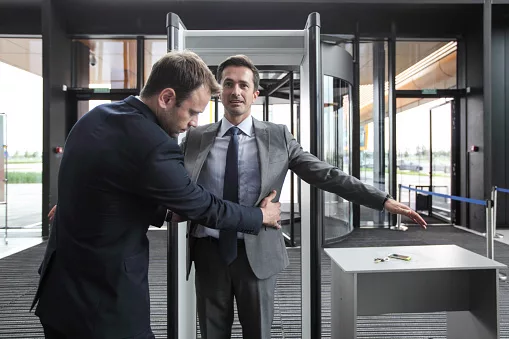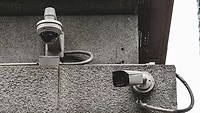Where to Draw the Line for Standing in Line
Do Employers Need to Pay Employees for Time Spent Going Through Security Checks?

Customer-facing businesses often have a host of reasons for wanting employees to undergo security screenings or bag checks at the start or end of their shifts. For retailers, it is about deterring and catching internal theft. For any other type of business where the public gathers, security checks are implemented to ensure the safety of both customers and employees. However, a recent trend of class action lawsuits are alleging that time spent going through security checks should be compensable.
From a common-sense perspective, most would never expect such time to be compensable. After all, compensable work time typically means any time an employee is “suffered or permitted” to work for the employer – in other words, the time the employee spends actually rendering services on behalf of the employer. But historically, ordinary commute time or acts incidental to commute time have not been considered compensable.
That is not to say that certain pre-shift or post-shift activities are never compensable. As a general matter, whether a task is compensable depends on how much control the employer exercises over the activity and whether the activity benefits the employer.
For example, if the employer requires an employee to change into and out of uniform on site (so-called “donning and doffing”), the time is compensable. If the employee is free to take the uniform home and arrive dressed, the time is not compensable. And while ordinary commute time is not generally compensable, some forms of commute time could be. For example, in California, where the employer dictates the mode of transportation, such time spent waiting for, and traveling on, the mandated mode of travel is compensable.
But if the employer provides a mode of transportation that is optional, courts have refused to require such time be compensated. In Overton v. Walt Disney Co., 136 Cal. App. 4th 263 (2006), employees at Disneyland argued that because they parked in an off-site parking area and were shuttled to the park, they should be compensated for the time on the shuttle. But the Court of Appeals disagreed because the employees were not required to take the shuttle, or in fact, to even drive their cars to work. They could have chosen to walk, commute on bicycle, or been dropped off.
Even in instances where the employer arguably exercised some degree of control over the employees, such as in the case of security checks, employers historically relied on a federal legal doctrine known as “de minimis” time to defend claims that employees were owed wages for the time spent waiting for and undergoing security checks. Federal law recognizes that some amounts of time are so small and irregular that it is impractical to track or compensate for.
However, in Troester v. Starbucks Corp., the California Supreme Court held that the de minimis doctrine is not recognized in California and did not apply to the particular facts alleged in the case. In Troester, managers, on a routine basis, spent between 4-10 minutes every day, after clocking out for the day, to close the store. Such tasks included initiating a software program to transmit daily sales, activating the alarm, locking the front door, occasionally reopening the store to allow employees to retrieve items left behind, bringing in store furniture inadvertently left outside, and, in compliance with Company policy, walking coworkers to their cars. Although the Court held the de minimis standard didn’t apply to those particular set of facts, the Court declined to decide whether the de minimis standard would “ever apply to wage and hour claims given the wide range of scenarios in which this issue arises,” such as “brief employee activity…incidental to noncompensable time, such as commute time.”
In other words, although Troester was a clear blow to employers seeking to rely on the de minimis doctrine, it still left the door slightly cracked open as it relates to security checks. After all, a pre-shift security check could certainly be deemed an activity incidental to non-compensable commute time.
Employer security checks do not align squarely with the facts in either Troester or the commuting related cases, however. On one hand, sometimes, they primarily benefit the employer (e.g., back checks to prevent retail theft), similar to the tasks performed in Troester. On the other hand, sometimes, they have another purpose (e.g., safety and security of the public) that does not primarily benefit the employer. Likewise, some security checks may reflect a degree of control exercised by the employer – i.e. prohibiting employees from leaving until they go through a security check. And on the other hand, some security checks may not reflect any real control – i.e. where an employee going through an entry security check is free to turn around and leave, or pursue any other activities the employee chooses before and after passing the security check.
Employers may soon receive some guidance on exactly how wide the door left open by Troester is and whether security checks, at least exit checks, should be compensable as there are several cases before the Ninth Circuit and the California Supreme Court which address the compensability of exit security checks. In these cases, the employers required employees that elected to bring a bag to work to undergo an anti-theft bag check. However, the time spent going through those checks were not compensated by the employer.
Regardless of how these exit search cases are decided, it is unlikely to resolve all of the questions surrounding whether security checks should be compensable. For example, the exit security check cases currently before the appellate courts concern situations where employees are able to skip the bag check altogether by electing to not bring a bag. Further, unlike pre-shift security checks where employees have some control over how long they spend in security lines (i.e. by arriving earlier and avoiding “rush hour”), post-shift security checks typically do not afford employees comparable control. And while post-shift anti-theft security checks provide a direct benefit to employers, pre-shift security checks do not. In the case of security checks done for the general safety of all, the chief beneficiary of such screenings is the public and the employees themselves, rather than the employer.
But if courts hold that time undergoing security screenings is compensable, then the greater issue facing employers is where the line should be drawn: Would employers need to start compensating for an elevator ride to the office on the 25th floor? The time walking from the front door into the employee’s office? Time waiting to pass through the parking lot gate? The possible places where employees are arguably under the “control” of employers, to the same extent they are under the control of employers during a security check, are limitless. These are all answers the courts will need to grapple with should they continue to slide down the slippery slope of requiring the compensability of incidental activities not done primarily for the benefit of employers and which are “involuntary.”
Unfortunately, the law on the issue is likely to be unsettled at least in the near term and companies will continue facing an increasing number of lawsuits until a definitive answer is provided by the courts or the legislature. Until then, employers would be wise to evaluate their own policies and practices and address any potential vulnerabilities in this evolving legal landscape.
Looking for a reprint of this article?
From high-res PDFs to custom plaques, order your copy today!








